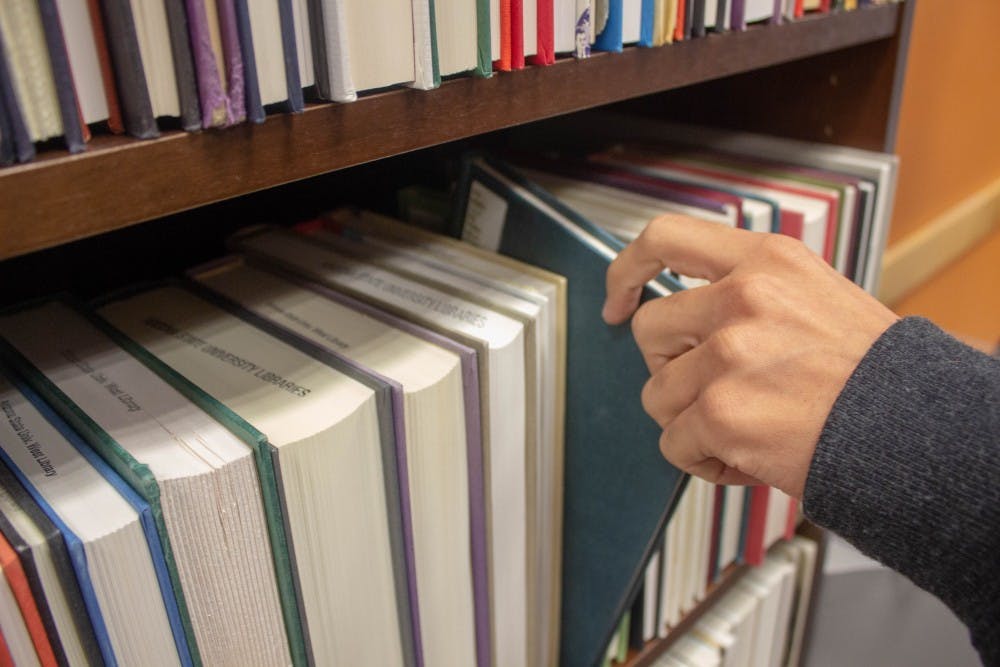When the blue glow of a cell phone screen becomes blinding and 280 characters doesn’t seem like enough, Fletcher Library at ASU’s West campus is ready to give students a surprise.
The Surprise Me! display on the first floor of the library boasts the work of renowned poets but with a twist: the spines of the books are facing inward “to encourage discovery and serendipity,” the event website says.
The display is just one of many in cooperation with the Future of Print initiative at ASU. The project is working to change and improve the way students engage with print materials, according to the Future of Print’s whitepaper.
Emily Pattni, the curation specialist for the Future of Print project team, said the inspiration for the Surprise Me! display came from the content of the books themselves.
“Poetry is a literary form that presents an idea in a visually interesting way," she said. "We figured, ‘Why not use that non-traditional format and shelf all the books spine backwards?’”
Pattni emphasized the importance of print materials as a learning resource for students. She said because people have different learning styles, simply Googling a question and having the answer pop up on their computer screen doesn't work for everybody.
"There are also users who are going to want to come into a library and get engaged with a book in that way," she said. “I think that having multiple forms of learning available to (students) is really, really important moving forward."
Christopher Hanlon, an associate professor of English at the School of Humanities, Arts and Cultural Studies, said he challenged his students to think back to the last time they went out and bought a novel of their own accord and compared that to the last time they did the same for a collection of poetry.
“I think far fewer contemporary consumers of creative literature are engaged with poetry with as much zeal,” he said. “The kinds of poems that get circulated seem so tweetable, and that kind of poetry is alive and well and exciting and happening."
Hanlon said, however, poems getting published in physical form has been slowly burning out, and he knows a number of talented poets who have difficulties getting their collections published in ink.
Sydney Madison, a junior studying journalism, said the experience of reading poetry out of a book is a far more personal and powerful experience than reading poetry off a screen.
"When it's just text on a page, the page is just blank aside from those black letters," she said.
Madison said she reads a lot of poetry on Pinterest and that it still does feel special that way, but not quite the same. She said that when she likes a poem, she'll take a screenshot of it, but she hates having to rifle through all the photos on her phone, rather than being able to write on the pages of a book to find the poems she likes.
"You can give a physical gift of a book and it would mean so much more," she said. "It's so much more personal."
Reach the reporter at japere38@asu.edu or follow @jsphprzz on Twitter.
Like The State Press on Facebook and follow @statepress on Twitter.




